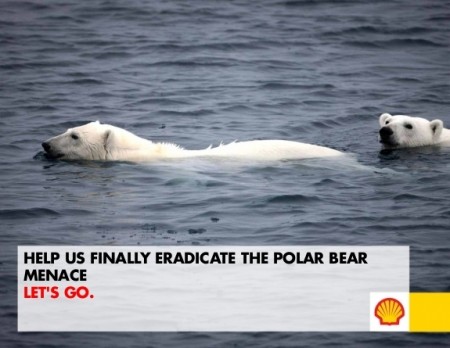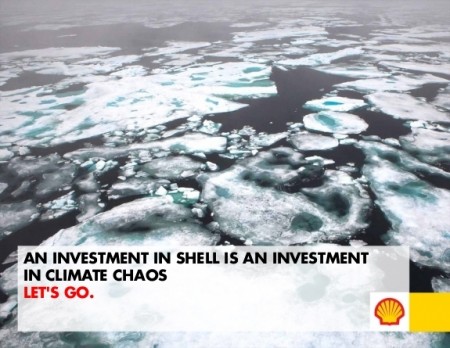Photos from some of today’s protests against the Enbridge Line 9 oil sands pipeline
Category: The environment
Atmosphere, biosphere, lithosphere, hydrosphere, etc – everything about life and the state of this planet
Toronto 350.org petitions
Climate and the second Obama administration
From Barack Obama’s second inaugural address:
We, the people, still believe that our obligations as Americans are not just to ourselves, but to all posterity. We will respond to the threat of climate change, knowing that the failure to do so would betray our children and future generations. Some may still deny the overwhelming judgment of science, but none can avoid the devastating impact of raging fires, and crippling drought, and more powerful storms. The path towards sustainable energy sources will be long and sometimes difficult. But America cannot resist this transition; we must lead it. We cannot cede to other nations the technology that will power new jobs and new industries — we must claim its promise. That is how we will maintain our economic vitality and our national treasure — our forests and waterways; our croplands and snowcapped peaks. That is how we will preserve our planet, commanded to our care by God. That’s what will lend meaning to the creed our fathers once declared.
We will see what kind of action the second term brings.
Previously:
David Miller and the University of Toronto fossil divestment petition
Former Toronto mayor and Large Cities Climate Leadership Group advocate David Miller signing the Toronto350.org divestment petition:
The photo was originally posted on Twitter.
Lisa Jackson and Keystone XL
U.S Environmental Protection Agency (EPA) administrator Lisa Jackson is leaving the Obama cabinet, apparently at least partly because of her opposition to the Keystone XL pipeline.
It’s worrisome that this one effort at controlling the growing North American fossil fuel industry – by blocking Keystone XL – has produced so much opposition. Meanwhile, there has been huge expansion in unconventional oil and gas production, including both fracking and the continued growth of the oil sands.
What we are doing now, continuing to invest the lion’s share in fossil fuel energy, is both environmentally destructive and economically wasteful. This infrastructure just isn’t compatible with what we are going to need in the future, once we finally start taking climate change seriously. Once we eventually find ourselves shutting down coal, oil, and gas infrastructure only partway into its economic lifetime we won’t be asking why Keystone XL was not approved, but why so many other misguided projects got built during these years.
Canada’s rules on charities and political activity
Canadian charities – especially environmental charities – now feel threatened that they will lose their special tax status if they engage in ‘political’ activity. The Canada Revenue Agency website describes the rules:
Registered charities are prohibited from partisan political activity, because supporting or opposing a political party or candidate for public office is not a charitable purpose at law. There are two aspects to the prohibition: the first restricts the involvement of charities with political parties; the second restricts the involvement of charities through the support or opposition to a candidate for public office. Charities engaging in partisan political activities risk being deregistered.
There is also a policy statement that further fleshes out the rules.
This means, for instance, that LGBT organizations cannot support candidates who support equal rights for their members or oppose candidates who want to restrict their rights. Environmental charities, likewise, cannot oppose parties or candidates that believe in the wholesale destruction of the natural world.
I think this overlooks the reality that large-scale social and political change always requires political agitation. Campaigns against child labour, or in favour of the rights of women, could never have succeeded if they did not engage with the political system. If society is going to continue to make progress, it seems sensible to recognize this and allow charities to pursue their aims through political means.
The current restrictions on political activity are especially objectionable in that they risk being selectively applied. Canada’s Conservative government is a strident defender of the oil sands and fossil fuel development generally, frequently advancing the laughable claim that this is an ‘ethical’ source of energy. Cracking down on charities for engaging in political activity is just another way in which the government can tilt the scales in favour of this destructive activity.
The scale of change which we need to achieve if we are to avoid catastrophic climate change is enormous. It requires major political change in countries like Canada. Allowing environmental charities to fund bird sanctuaries, but not to support or oppose parties or candidates, misrepresents the scale and character of our environmental problems. It also misrepresents the proper role of civil society in democratic societies, which does not end where the formal realm of ‘politics’ begins.
Climate change and democratic legitimacy
I have finished my final assignment for the term, the essay for my Global Environmental Politics course. It is about climate change and democratic legitimacy:
- Microsoft Word file (205 kilobytes)
- PDF (381 kb)
Many of these ideas are likely to find their way into my PhD thesis, so I would definitely appreciate feedback.
“Chasing Ice”
I saw “Chasing Ice” with some Toronto350.org people tonight. The film has a lot of visual appeal and contains some useful information. It’s definitely worth seeing.
One interesting thing about it for me is what is suggests about human reasoning. From a scientific standpoint, all this photographic and videographic documentation of melting glaciers is probably less useful than RADAR images shot by satellites. Yet the process of collecting the videos and photos, and the human drama involved in the endeavour, seems to significantly increase the salience of the message for people. After the film ended, most of the people in the theatre were happy to sign the Toronto350.org divestment petition.
Emotional salience may be what we really need at this point. We’re at a moment in history where most people accept that the climate is changing in dangerous ways because of human activity, and that something should probably be done about it. The trick will be getting people, firms, and governments to do enough quickly enough to prevent the worst things that could happen.
The film will be playing at Toronto’s TIFF Lightbox until December 13th.
Santa soliciting Shell divestment petition signatures
Today, we collected more than 200 petition signatures calling on the University of Toronto to sell their stock in Shell:
I am thoroughly appreciative to the Toronto 350.org volunteers who organized the whole event and then pulled it off today.
We will be building up our divestment campaign by seeking more signatures, including from campus groups and prominent alumni.
Both those associated with the University of Toronto and outside sympathizers are asked and encouraged to sign our petition. We are hoping to get thousands of names on it before we present it to the president of the university.
Shell ad parody generator
With this website, you can make your own satirical version of Shell’s “Let’s go” ads:
Shell is one of the most enthusiastic companies taking advantage of how climate change is melting the arctic in order to drill for oil there and thus cause even more warming. Shell is also the largest single investment in the portfolio of the University of Toronto.
Toronto 350.org is calling on the University of Toronto to sell its stock in Shell, as a starting point for a general campaign of fossil fuel divestment.








